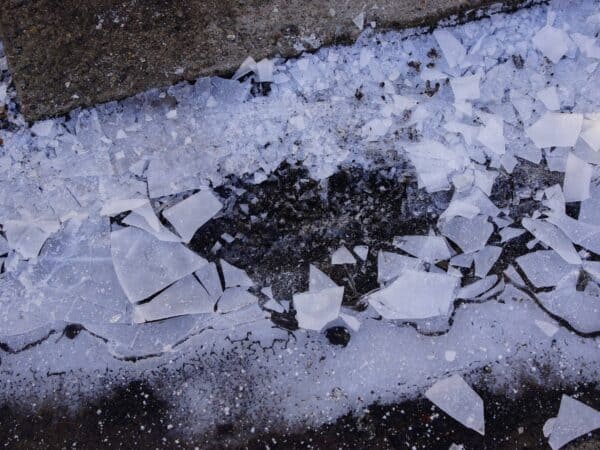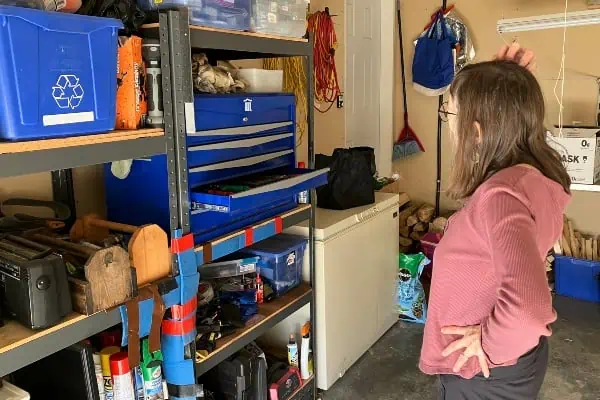
There was a loud crack and the machine crashed through the ice.
“It was a brand-new century when Robert Service wrote in one of his poems about the Arctic trails (that had their secret tales) with the ability to make your blood run cold.
We are now in a new century, again, and a catskinner by the name of Glen (I don’t know his last name) would concur that the famous bard’s line still rings true today.
Glen grew up in Ontario, where much of his time was spent in the pool as a competitive swimmer. It would be many years before an incident in the Arctic would confirm that he had spent his time wisely.
Not much is known about him in his early adult years. Somewhere along the way, he started working in the construction industry and became adept at operating several types of construction equipment.
He was probably close to 50 when he made his way to Inuvik for work in 2002. He found a job running a small Cat and clearing seismic cut lines in the Mackenzie Delta, north of Inuvik.
His job had been going well for a few weeks when, one afternoon after coffee break, he started to doze a line across a patch of ice, to another channel of the delta.
He was nearly halfway across when there was a loud crack and the machine crashed through the ice.
Water gushed into the cab from many directions.
He made his escape by pushing open the rudimentary plywood door on the left side of the flooded machine.
Free from the machine, he made his way to the surface. Instinct from those many years as a competitive swimmer now guided his escape in the frigid Arctic water. Nearing the surface he discovered that he couldn’t break through the rubble ice. Without any hesitation he dove to the bottom and found the machine’s door.
He re-entered the watery cab, fought his way through multiple levers and scrambled out the right door of the machine as his lungs pleaded for oxygen. He put his superior swimming skills into action and dragged his freezing body along, with multiple layers of soaked winter clothing, and again headed for the surface. His lungs felt like they were ready to explode when his head finally broke through the water’s surface.
Gasping frantically, he gulped in the cool Arctic spring air. Paddling in the bitter cold water, he soon realized that his wet, frigid ordeal was only beginning. The next problem he had was to find a way to grip the icy surface and pull himself, and his waterlogged clothing, onto the ice. Luckily, he was still wearing his work gloves, which prevented his hands from freezing completely. With all his might, he made a couple of unsuccessful lunges to scramble over the two-foot wall of ice.
A solution had to be found, fast, or the Arctic waters would soon claim him as a victim. He paddled through some rubble ice and managed to find the roof of the machine. Standing on the roof, in waist-deep water, he commandeered every ounce of strength his body could muster. His legs sprang into action and his hands scratched and pawed; and with a half roll, he finally escaped the frigid water’s grasp.
After dumping the water out of his boots, he turned his attention to finding the shortest path for help. He cocked his ear as he thought he had heard the sound of equipment to the south. At minus 10, he headed south, step by sloshy step, then stopped to listen for a moment after travelling a distance. He now felt sure he had heard equipment to his north.
He sloshed his way back to the north, only to discover that the equipment was operating on another channel of the twisted Mackenzie Delta.
It was a tough slog while he retraced his steps, and his soaked winter clothing was starting to resemble an ice sculpture. He trudged on and on until finally, in the distance, he spotted a plow truck coming toward him. It was widening the ice road.
The lights were gradually getting closer but seemed to be moving at a snail’s pace, and then they were gone.
He could make out a dark blob that was getting wider, and that’s when he realized that the truck was turning around. His frozen clothes refused to cooperate as he tried to wave frantically.
As the dark blob became smaller, he knew his only option was to keep moving closer and hopefully he would meet the plow truck on its next pass.
How was he to know that the plow truck driver had just checked his watch and had decided that it was his last pass for the day and that he would head home to camp.
The temperature started to drop as Glen kept moving. His stiffened winter clothes felt like sheets of ice, and he was being chilled to the bone. Each step was becoming a struggle. Over and over, he thought, Discipline … Keep moving, keep moving!
It was all becoming a fantasy as the chill took control of his mind. The Arctic sun was losing its strength, which meant it was close to supper time. A warm ride in the big truck that he had heard would be wonderful. Oh look! There’s a set of headlights coming …” (his mind kept playing games).
While Glen’s mind was in its own little world, the plow truck driver had checked his watch again when he arrived at the southern end of the section he had been plowing. The driver then decided to make one more pass and was nearing his turnaround point when he noticed a dark figure stumbling down the road.
Glen couldn’t offer much help as the driver struggled to fit his frozen, stiff passenger into the small truck cab.
Camp staff sprang into action and had a tub of water waiting when the radio blared that a dozer operator who was suffering from extreme hypothermia, was speeding towards them.
Glen’s Arctic dunking set off a firestorm in the oil company’s Calgary office tower. The complete job was shut down and the crews were confined to camp, with standby pay. A flurry of company jets winged their way to the Arctic. The company’s safety officials were on a mission to get to the bottom of that northern dunking, come hell or high water. A broken fingernail was the only injury that they tolerated. Not a single ice crystal would be left unturned until the culprit was found that ruined their perfect safety record (damn it!).
The culprit turned out to be a patch of candle ice, and the ice profilers were then trained immediately to identify problem ice.
Glen had made a complete recovery, by the time the job fired up again, and attended the morning safety meeting. Most of us who have suffered through oil company safety meetings were usually driven half batty after a few weeks. If it had gone on much longer, we would have been prime candidates for “the rubber room.”
The safety officers that run the meetings are usually paper-pushers, and most haven’t a clue how to run equipment. The meetings are an irritant for most workers but they try to avoid any confrontation with the safety pipsqueaks and, instead, let them drone on. Glen would be the exception. The meeting was starting to irritate him (who knows … maybe when you almost freeze to death, one gets that way). The safety guru and some of the Calgary big shots were beginning to get under his skin.
They always stress in safety meetings that coarse language is not tolerated. Well … maybe not so much if you have paid the ultimate price. Glen had earned the right to an open mic, and he lambasted the entire organization, after which the little guru whined, “Try and use the radios more often to let everybody know where you are.”
If there were any remnants of frostbite left in Glen that morning, he blew it out when he blurted, “You f$$%*#*g idiots! The whole bunch of you don’t seem to have a single ounce of common sense. Radios don’t work underwater!”




